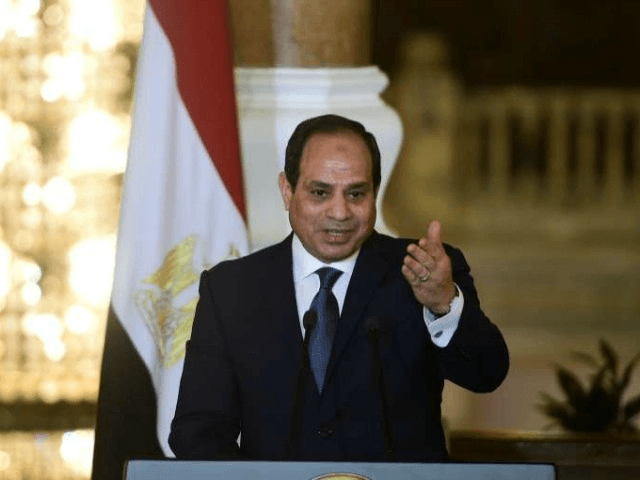Egyptian President Abdel Fattah el-Sisi issued a decree Wednesday forming the National Council to Confront Terrorism and Extremism. Membership in the council includes a number of government ministers, plus religious leaders such as the Grand Imam of the Al-Azhar mosque and the Coptic Christian Pope.
Government officials with seats at the table include the speaker of Parliament, the prime minister, and the ministers of defense, religious endowments, justice, the interior, and foreign affairs. The religious ministry is formally known as the General Authority of Islamic Affairs & Endowments and has controversially exercised the authority to dictate the content of sermons in Egyptian mosques.
“The council is tasked with drawing up a strategy to confront terrorism and extremism, coordinating with religious institutions and security authorities to promote moderate religious discourse and studying and proposing amendments to terrorism-related legislation,” the Associated Press reports.
Somewhat ominously, President Sisi’s decree added that the council “will also take necessary legal measures against nations that support terrorism against the Egyptian state.” One can only wonder if he had a particular nation in mind for the council’s lawyers to go after first.
Another mandate for the council is to “create jobs opportunities in areas with high levels of extremism and to study the granting of soft loans to those who, through follow-up, demonstrate their abandonment of extremist ideology.”
Egypt is currently under a state of emergency, declared after the horrific ISIS suicide bombings of Coptic Christian churches in Alexandria and Tanta during the Easter holiday, killing 46 people. The state of emergency was originally set for three months, but was extended for another three months by Parliament at Sisi’s request when its July expiration date arrived. Egypt’s ongoing battle with Islamic State insurgents in the Sinai Peninsula, who frequently murder Copts in their terrorist attacks, was cited as a reason for extending the state of emergency until at least September.
Egypt is also dealing with a relatively new militia called the Hasam Group, which has attempted to assassinate several government officials. The group, whose name means “decisiveness” or “determination,” has been linked to the Muslim Brotherhood, which governed Egypt until Sisi overthrew them in a 2013 coup.
An extended “state of emergency” in Egypt is hardly unusual; as the New York Times points out, one was technically in effect throughout the entirety of deposed President Hosni Mubarak’s 30-year reign. Sisi’s government has been criticized for violating essential freedoms and suppressing political opposition with the powers it has asserted to combat terrorism, criticism outside observers will doubtless expect the National Council to Confront Terrorism and Extremism to address.
Sisi first spoke of establishing a national council to combat terrorism after the April church bombings, as he struggled to reassure his Christian supporters he could still protect them. Pope Tawadros II declared that the attacks “will not harm the unity and cohesion of the people.” The Grand Imam of Al-Azhar condemned the ISIS massacre as “a despicable terrorist bombing that targeted the lives of innocents.”

COMMENTS
Please let us know if you're having issues with commenting.